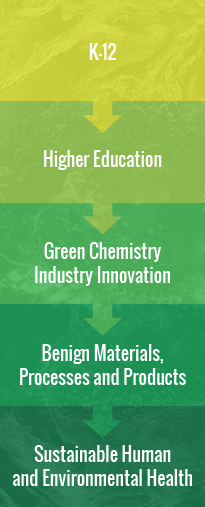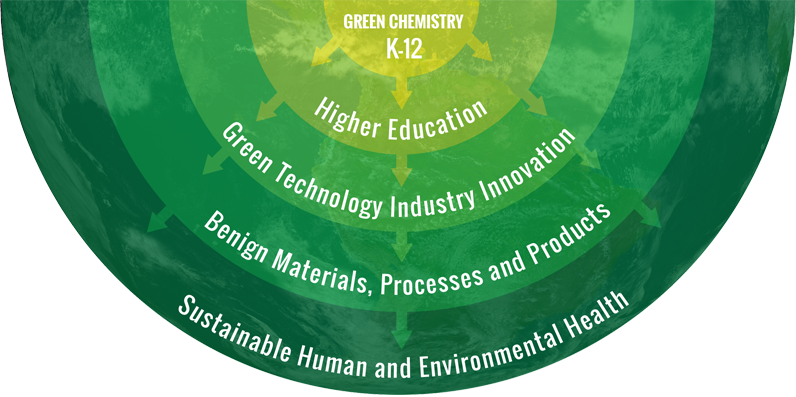Beyond Benign develops and disseminates green chemistry and sustainable science educational resources that empower educators, students and the community at large to practice sustainability through chemistry.
We work directly with educators and a network of strategic partners focused on science education, sustainability, innovation and initiatives supporting human and environmental health to provide an educational continuum from K-12 to higher education with an important community engagement component.
what we do
our service and impact
K-12 TEACHER
TRAINING

6,500+
K-12 teachers trained
COMMUNITY
ENGAGEMENT

35,000+
students, teachers and community members reached
HIGHER
EDUCATION

150+
college and university
Green Chemistry
Commitment Signers
GREEN CHEMISTRY
CURRICULUM

200+
lesson plans
and educational units
sustainability through chemistry
The Challenge – Society depends on the molecular building blocks (chemicals) that are the foundation of the products we use. From life-saving pharmaceutical drugs to high performance materials – without chemicals and chemical products our standard of living would significantly decline. The challenge is to provide society with essential chemical products, while maintaining chemical products that are economical, sustainable, and high performing.
Our Approach – Green Chemistry is the design of chemical products that reduce the use or generation of hazardous substances. By supporting educators and students to teach and learn green chemistry and sustainable science in K-20, Beyond Benign is equipping the next generation of scientists and citizens with the tools required to design and select products that support human health and the environment.
theory of change


K-12 – Education is at the core of developing a skilled scientific workforce and knowledgeable citizenry who are prepared to design and choose products that are safe for human health and the environment. Scientists are inspired, and perceptions of science are shaped early in education, making K-12 education essential.
Higher Education – Through the integration of green chemistry and toxicology within higher education, students can be trained to recognize and design-out molecular hazards at the earliest stage of a molecule or material lifecycle.
Green Chemistry Industry Innovation – Scientists with the skills to design products that have reduced human health and environmental impacts apply their training towards innovating solutions to sustainability challenges.
Benign Materials, Processes and Products – Products and processes are available in the marketplace that are safe and healthy for humans and the environment.
Sustainable Human and Environmental Health – Through green chemistry education and innovation a sustainable society can be realized, supporting a healthy population and a stable environment.
